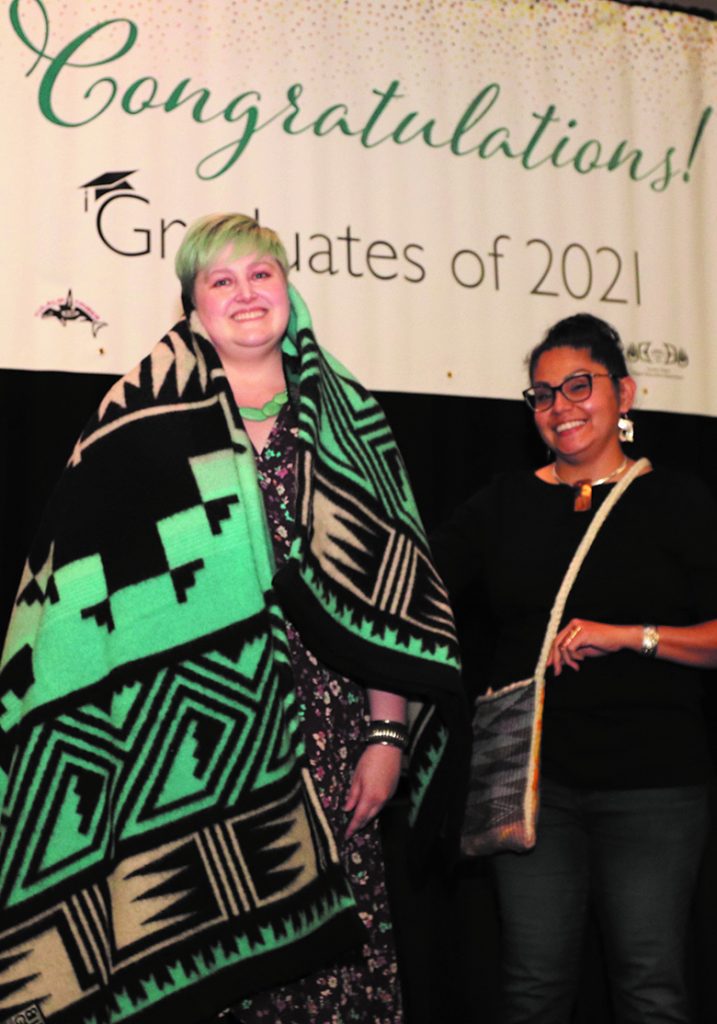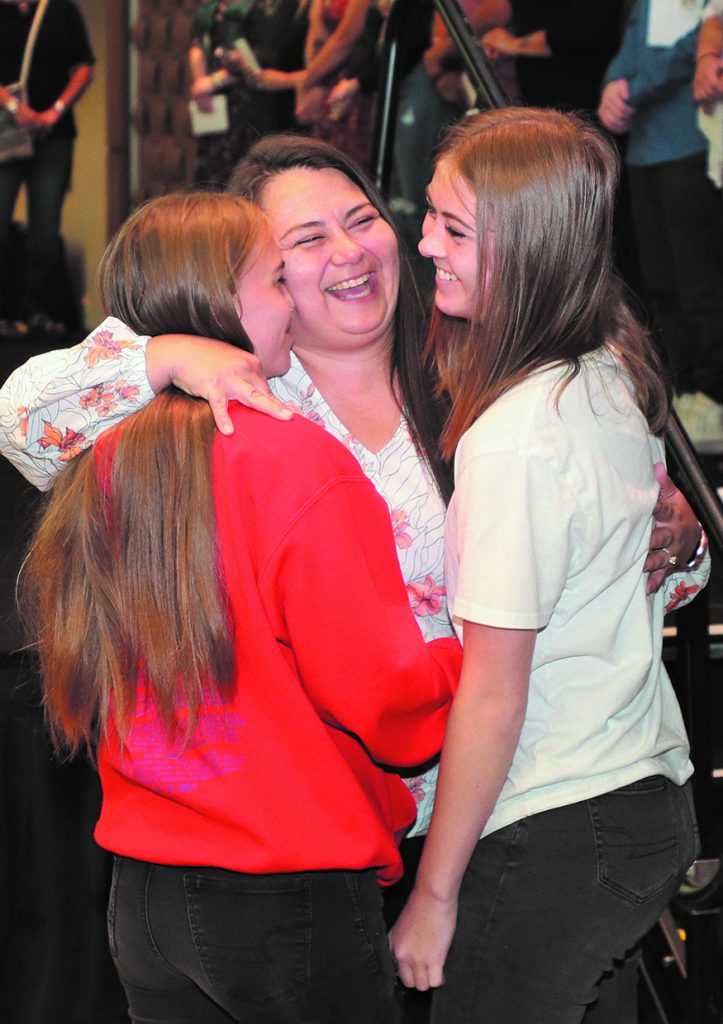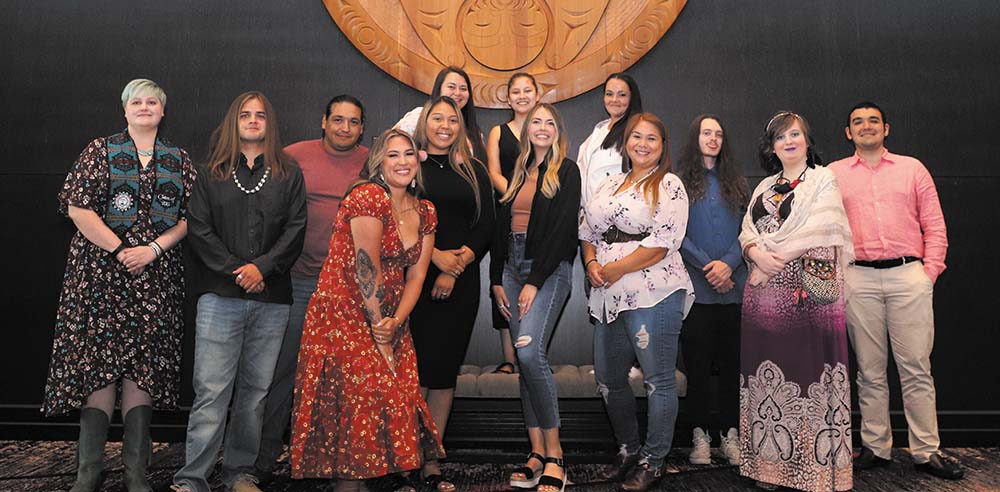
By Micheal Rios, Tulalip News
Every time a Native American graduates from a university, community college or vocational school, they become the living embodiment of what it means to reclaim a narrative. For so long Native students were shut out of academic environments where they could tell their own stories and promote their thriving traditions.
When it comes to being Native American and educated, the dominate narrative is they can’t succeed in a westernized education system. United States Census data supports this notion by showing that while more than 65% of American high school students go to college, just 19% of Native students continue their education after high school. In an age where education is an important cornerstone for self-sufficiency and quality of life, only 13% of tribal citizens age 25 and older hold a college degree.
That narrative is being reclaimed and rewritten by present day Indigenous scholars who are actively working to decolonize education pathways, not just for themselves but for generations to come. On the evening of July 28, thirty-one such proud Tulalip scholars were celebrated for their commitment to higher education and, in the process, breaking the often-cited stereotype that Natives don’t succeed on the college level.
“You’ve all put in so much hard work and countless hours of studying to earn your degrees. We are so proud of you for choosing to better yourself, your family and your future through education,” said Tulalip Chairwoman Teri Gobin during the higher education graduation dinner. “As a Tribe, we know we need to be better at utilizing your brilliant minds and supports our college graduates. As we continue to grow our business operations and evolve as a tribal government, we want you to feel welcome to build a career with us.”
It was a powerful moment as the words washed over the graduates as they sat with their support system of family and friends in the Tulalip Resort’s orca ballroom. Hopefully many of the graduates will consider finding their place within Tulalip’s enterprise that every year expands larger than both casinos and the Administration Building.
For some of the graduates, they are already working diligently on carving out a role on their traditional homelands. Homegrown product Adiya Jones attended Quil Ceda elementary, Totem middle school and Heritage high school before venturing off to Skagit Valley College to earn her degree. While attending college, she began working for Tulalip’s Youth Services with a mission to show the youth that they can succeed on and off the reservation.
“I think it’s so important to surround yourself with people who want to see you succeed and motivate you to continue growing into your best self,” said Adiya. “I was fortunate to have those kinds of people in my life and now I want to be that person for others. With the right support system, our kids can dream bigger and brighter. My advice to my fellow graduates is to consider working for your people. The best thing about the Tulalip Tribes is they’re very welcoming to their own people and the higher practices are set up for us to succeed and allow us to transition to other departments in order to find what we’re passionate about.”
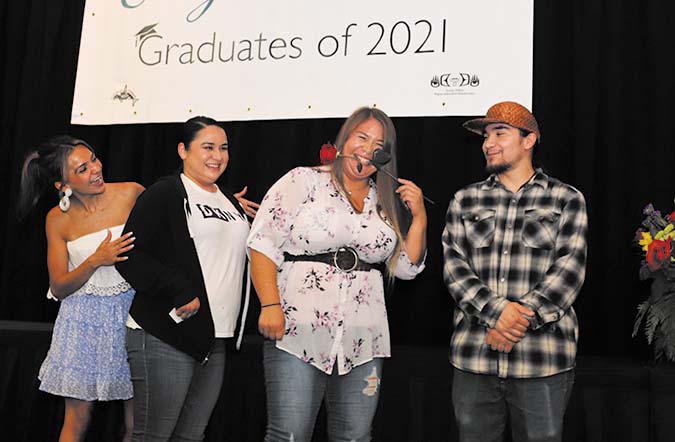
The class of 2021 higher education grads included 9 Associate’s degrees, 8 Bachelor’s degrees, and 3 Master’s degrees. Six vocational diplomas, 4 high school diplomas, and a GED recipient rounded out the 31 Tulalip honorees.
Native graduate stories are as complex and diverse as the students themselves. It’s often a longer, tougher road for Tulalip adults pursuing their education, which is all the more reason to celebrate their accomplishments. Such is the case with 42-year-old Santana Sheldon-Thompson who managed to balance her family life with multiple kids, working a fulltime job, and going back to school to fulfill an educational dream.
“To be truthful, I was a little embarrassed at my age receiving my Associate’s degree. Then I realized everyone has their own path,” shared Santana, now a Columbia College graduate, who was embraced by both her teenage daughters before taking the stage. “My path was to raise my two girls, give them my full attention and pause on my education. My advice to both my daughters is it’s never too late to go back to school and you’re never too old to learn new things. My grandpa Francy once told me, ‘You never stop learning’, and those words are always in my heart.”
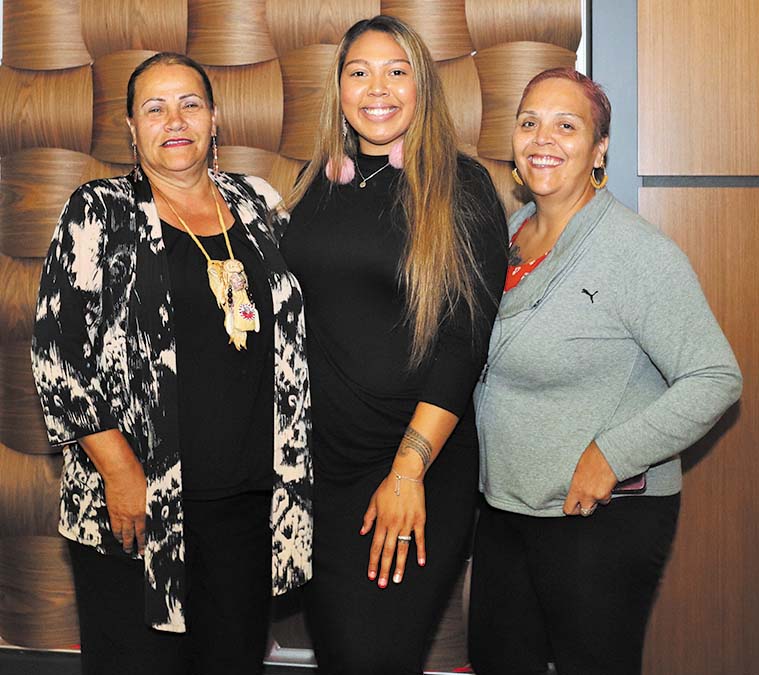
The importance of recapturing the story about Natives and education requires telling it anew with bold new characters and captivating subplots. Unquestionably, it will take a new generation of Native storytellers who have the cultural knowledge and digital knowhow to film, photograph, and document history as it unfolds on reservations across Native America.
Tulalip tribal member Chalet Alexander shares in the mission to recapture the story of her people and armed with a Master’s degree from Seattle Film Institute, she intends to do just that. For her incredible work to date and courage shown to overcome severe mental illness enroute to her degree, Chalet was chosen as the student speaker and wrapped in a 8th Generations blanket.
“It’s so difficult being a Native American and telling the story. It’s difficult being a woman and telling the story. What drives me is knowing how difficult it is and yet choosing to overcome all of it by saying ‘I’m important. My people are important. And our stories are worth telling’,” said Chalet. She hopes to continue her educational journey first, with her goal toward a one-of-a-kind experiment media Ph.D. offered by Western Washington University. “Ten years from now I will be telling stories in a unique, ever-changing way that will evolve as our technology continuously improves.”
Tulalip Higher Education staff are eager to help new and returning students find their path to academic success. They can assist with FAFSA applications and finding scholarship opportunities, as well as simply reviewing the Tribe’s current policies regarding paying for college. For those tribal members who are empowered to help reclaim the narrative, please contact Higher Education at (360) 716-4888 or email highered@tulaliptribes-nsn.gov
